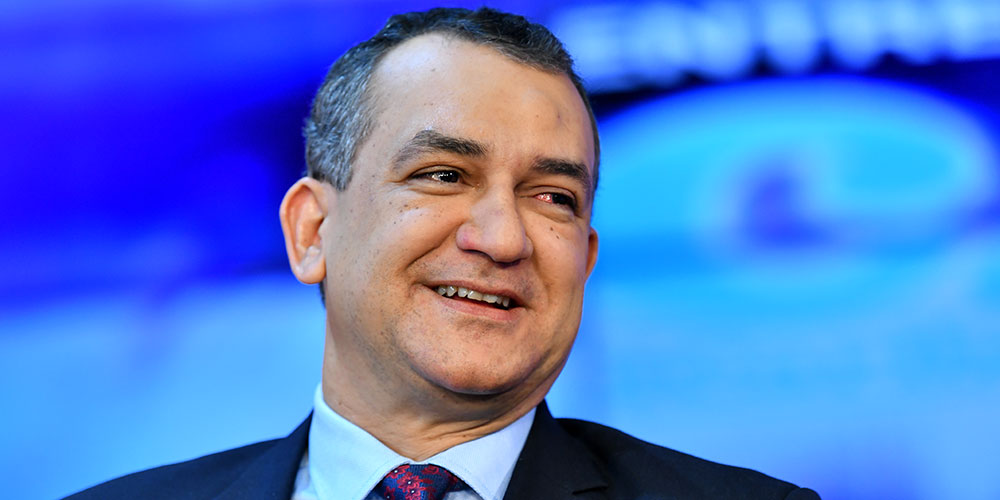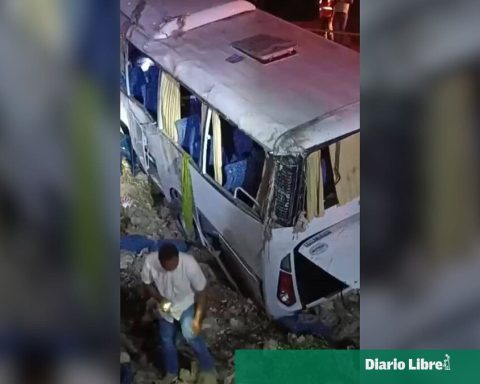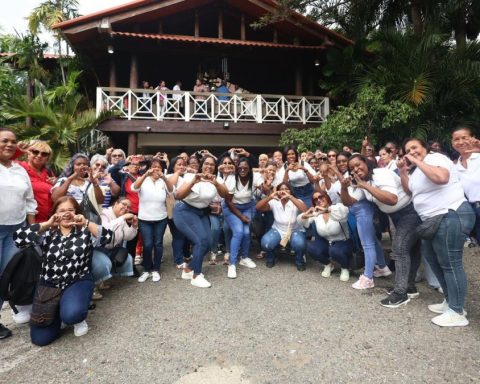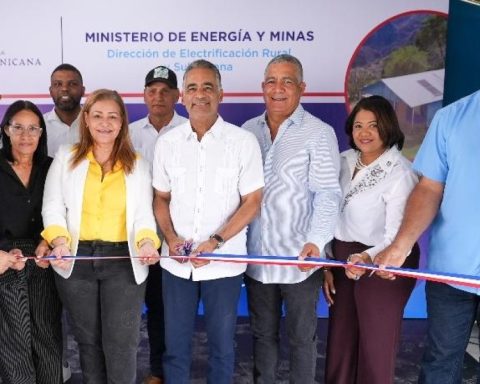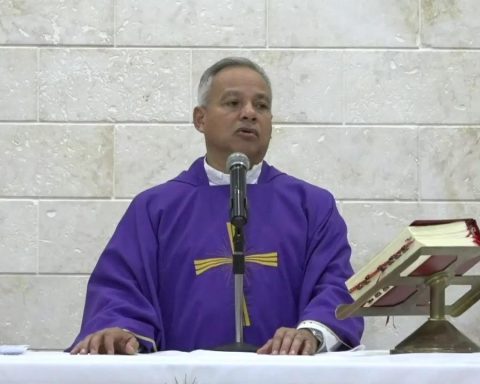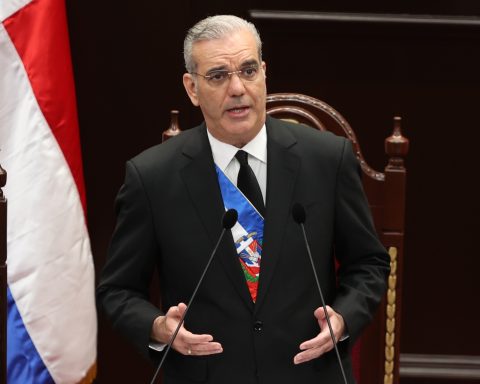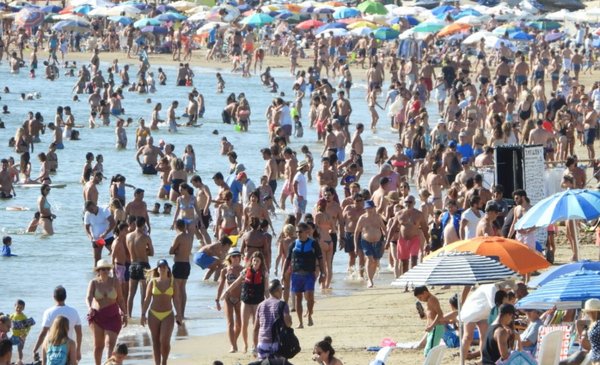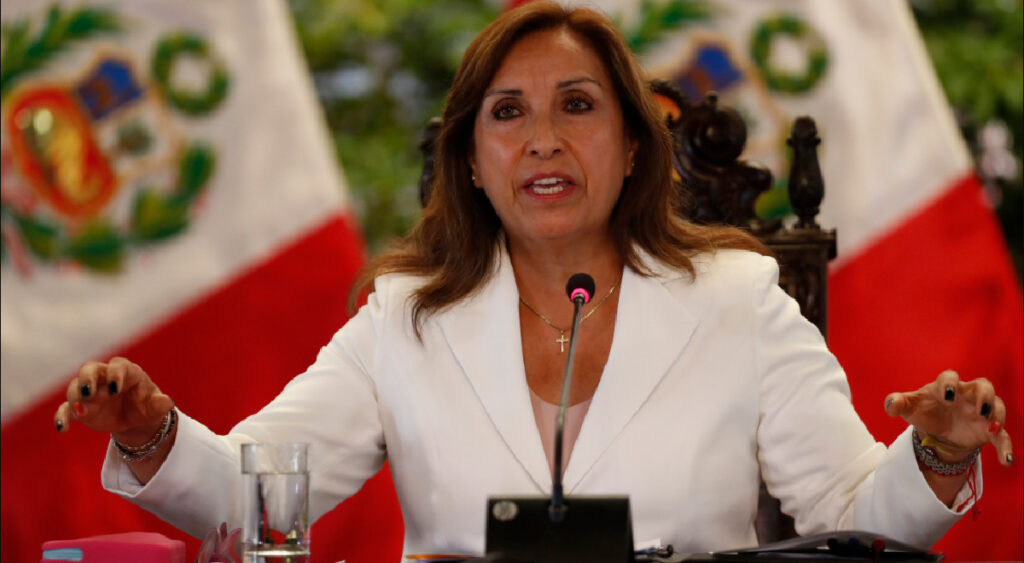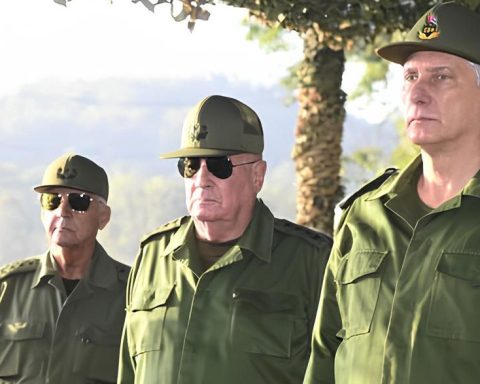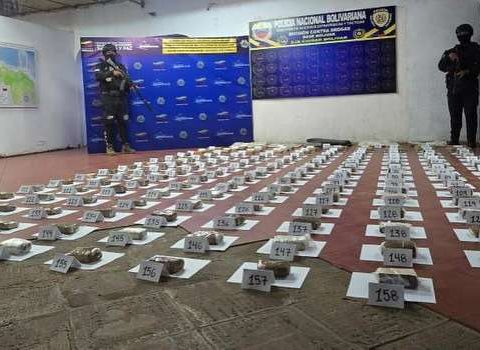JCE foresees up to 20 thousand schools and more than 100 thousand in the assembly of the 2024 elections
The president of the Central Electoral Board (JCE), Román Jáquez, reported that the cut in the electoral roll for the 2024 elections so far is 8 million 32 thousand citizens able to vote.
He announced that if the goal of registering more than one million Dominicans living abroad is achieved, the voter registration for the presidential elections of May 2024 could reach 8.6 or 8.7 million voters.
According to data provided by Jáquez, the register has grown by half a million voters compared to 2020, when the list of voters was 7,529,923. If the JCE projection of the register reaching 8.6 million were met registered, by 2024 there would be more than one million new voters compared to 2020.
Jáquez explained that the voter register abroad went from 595,000 in the 2020 elections to 727,237 registered until Monday, which represents 148,000 additional voters compared to 2020.
“We abroad have a campaign to ‘register for the homeland that you carry inside’, the foreign register in 2020 was 595,000 registered abroad, we want to bring this to 1.2 million, or more than a million because we want to double the quantity”, pointed out Jáquez.
He argued that in order to register more than 250,000 people pending registration abroad, the JCE is developing a digital pre-registration system and a prior appointment to facilitate the registration of interested persons.
The president of the electoral body also announced that they project between 19,000 and 20,000 polling stations for voting in the country and abroad. He explained that each polling station is made up of 5 people, which would represent about 100,000 workers only in the voting centers on election day.
“There are not only 100,000 people, we have to have a registry of eligible people and we want to reach 200,000 people, which is why in the next few days a campaign will begin to motivate citizens over 18 years of age that democracy hurts them, that they civility hurts, so that they can participate and we do not leave this to people who have historically gone to the polling stations as party delegates and then are presidents and members of polling stations,” said the president of the electoral body.
When participating in the special interview of elCaribe and CDN, Jáquez offered extensive details of the progress of the assembly of the February and May 2024 elections. “The Central Electoral Board has a motto, with time, and the 158 electoral boards and More than 1,600 people were sworn in at 21 electoral logistics offices abroad, which function as electoral boards,” the president of the JCE pointed out.
The interview with Jáquez was led by the director of elCaribe, Nelson Rodríguez; the director of CDN, Alba Nellys Familia and the commentators of Despierta con CDN, Julissa Céspedes and Katherine Hernández. Jáquez was accompanied by the director of communications of the JCE, Suedi León.
“Schools will not leave unbalanced records”
The president of the JCE gave guarantees that with the voting and scrutiny procedure that the JCE has proposed, the historical problem of the mismatch of records that go to the electoral boards will be resolved.
“Voting is manual, both nationally and abroad, a manual scrutiny, that is, a manual count, then comes a digitization of the results; the printing of a physical certificate, but not filled out by hand; the count is made at the polling station, a kind of draft is going to be drawn up that will be filled out by hand; Then they go to the results digitization center, they take the draft, in front of all the observers, everything will be allowed to be recorded, ”he explained.
He added: “When the record is digitized and it is verified that it is the same as the draft, it is printed, returned and reviewed, there will be no sticks, no zeros by hand, the system will not allow any mismatch; before the imbalances could not be resolved there, the idea is that you do not leave that electoral college until the minutes are squared and signed”.
He pointed out that the scanned act will give the results that will be digitized and those will be definitive results. “The idea is, I reiterate, that from the polling stations, and from the electoral precincts, a record that is not square does not come out, that will avoid the crowds and all the conflicts that arose in the electoral boards, where managers came to balancing minutes, taking votes from people, putting them to another, all of that,” Jáquez said.
The president of the JCE explained that the proposal on voting and scrutiny is in the final phase to issue the resolution and that they had not done so pending the amendment to the Electoral Law. He informed that soon there will be a hearing with the political parties to present the final resolution.



“JCE will approve resolutions to avoid spurious money in the campaign”
The president of the JCE affirmed that through the Oversight Directorate that was created during the current administration, the money that political parties receive during the electoral campaign from the private sector will be strictly monitored. “We are not with our hands tied, we are waiting for the law and through a resolution we are going to establish a number of aspects that the Law does not establish, however, the issue of drug trafficking and organized crime permeates even the most solid and modern States, This is a challenge not only for the JCE but for the Dominican State, as a State”, he stated.
“Political power missed an opportunity for far-reaching electoral reform”
Román Jáquez considered that the political power lost a great opportunity to approve a broader electoral reform with the recently approved modification to the Electoral Regime Law.
“The JCE proposed a comprehensive reform, an ideal reform, and we know that comprehensive reforms are sometimes difficult to agree on; no less true is that, not the National Congress, we understand that the political power lost an opportunity to make a broader reform, that would have a greater impact on democratic values, that would have a greater impact on electoral competition, but the JCE as arbitrator of the process, as organizer , there is no longer a debate about what is good and what is bad”, he stressed.
He explained that the JCE will focus on applying what the law says at each stage of the electoral process and on complying with the procedures in compliance with the Constitution. “The JCE, respectfully, what it is going to do, is to apply the law that was approved based on the principle of legality, there are some pending regulations and resolutions and we will apply it with this reform that has had an impact to some extent on these proposed regulations and resolutions” , said.
However, the president of the electoral body welcomed the changes that were made to Law 15/19 because it was possible within the democratic framework. “There are important elements that are healthy, for example, precautionary measures and it is expressly found that the JCE can already issue precautionary sanctions and administrative sanctions,” he explained.
He added that the new law orders that the administrative sanctioning process be regulated. “It establishes principles that were not very clear before, the principle of electoral integrity, also the Electoral Public Ministry, as well as measures and classification of what are crimes and crimes, with sentences of two and ten years, not as before when they were sentences of one year,” he said.
Likewise, he said that although the spending ceilings for candidates and pre-candidates were not lowered, no less true is that he punishes candidates who exceed spending with fines. “It is a sanctioning regime that is envisioning positive steps, but there are other aspects that should have been considered, but we are already here to apply that law,” acknowledged the president of the electoral body.
Jáquez said that the JCE made a proposal to reform Law 15/19 in a text of more than 300 pages and that it exhausted a socialization process that included the political parties and the Economic and Social Council (CES).
“We will give a report whether it is a duck or a coot”
The president of the JCE on the denunciation of several opposition parties of the alleged purchase of mayors from the parties that oppose the ruling Modern Revolutionary Party (PRM) revealed that the plenary session has already been seized of a preliminary report that is in the analysis phase.
He said that in the midst of the investigation other complaints have been filed that have been incorporated into the original analysis and that is why more time has been taken. “We are going to have a final report, as a full one, we have a preliminary report but other complaints have been added that have been incorporated; We are not going to omit in that sense, we are going to read the report, be it a duck or a coot”, he affirmed. The main opposition parties denounced a year ago before the electoral body that the government party was allegedly “buying” mayors who were elected on their ballots in the 2020 elections. According to the complaint, the government offers financial support to the mayors to works in their communities on the condition that they join the ranks of the official party. More than 40 municipal officials have gone to the PRM.
